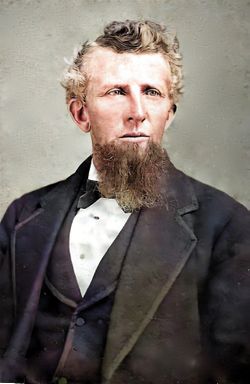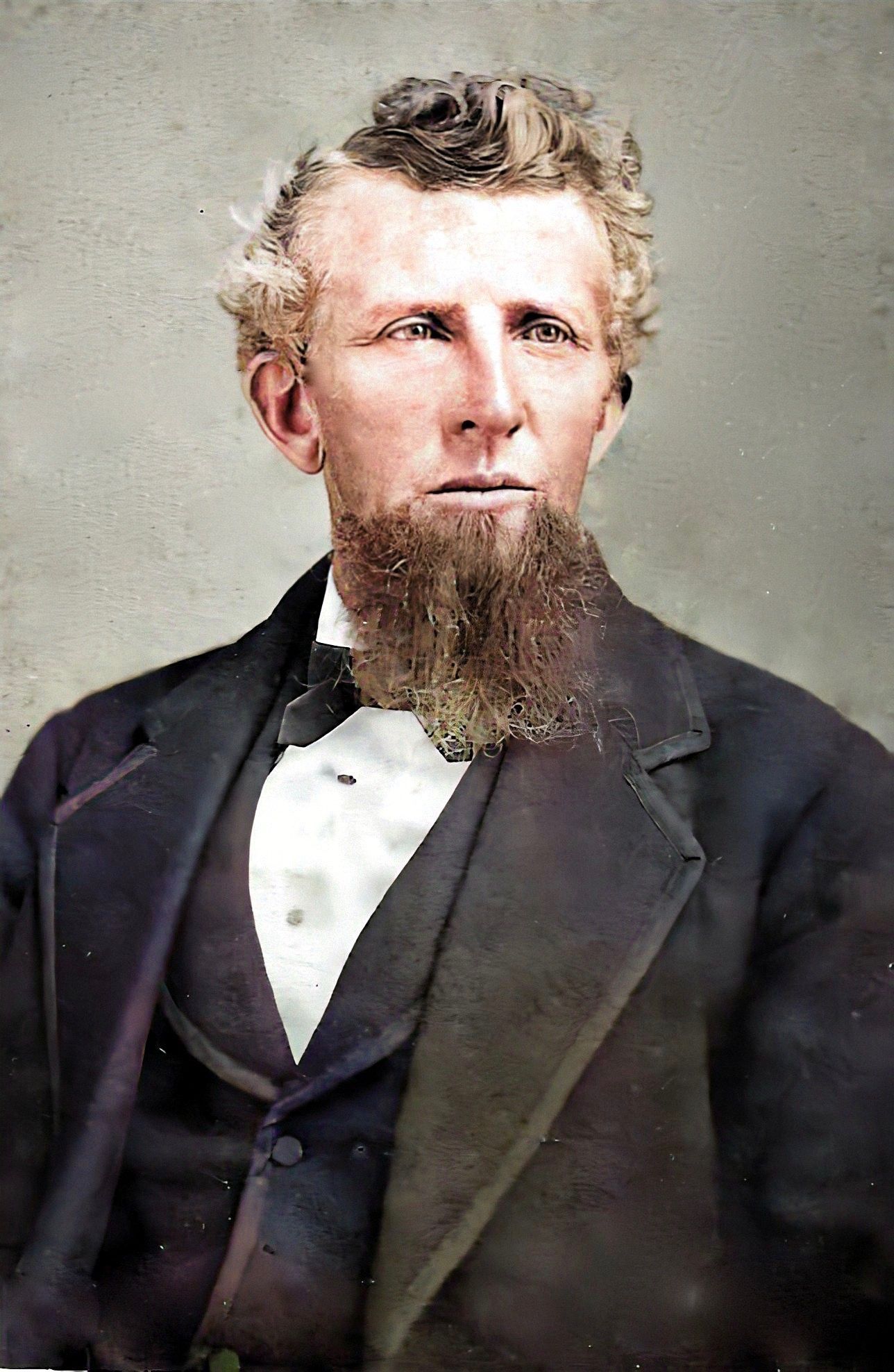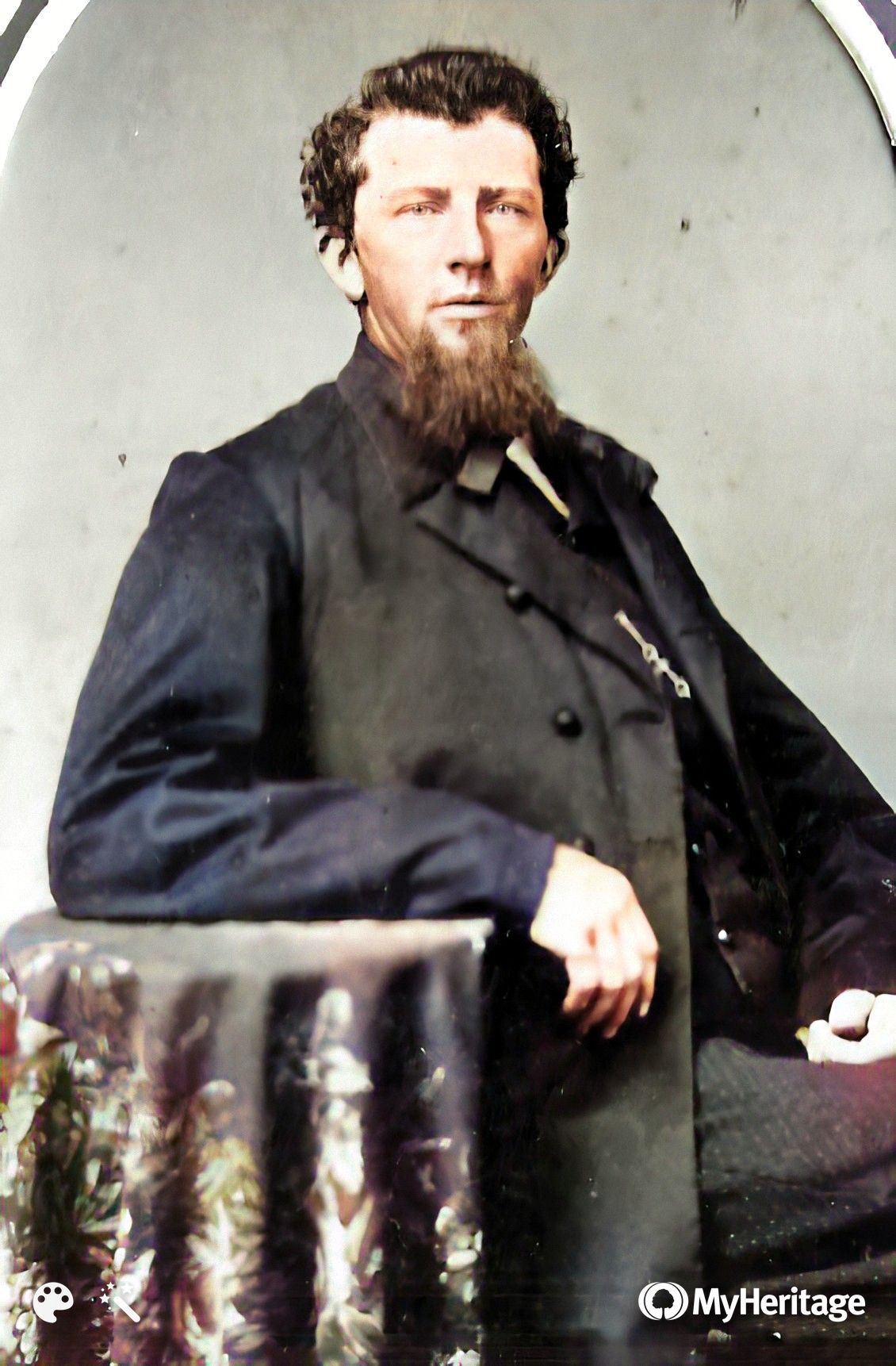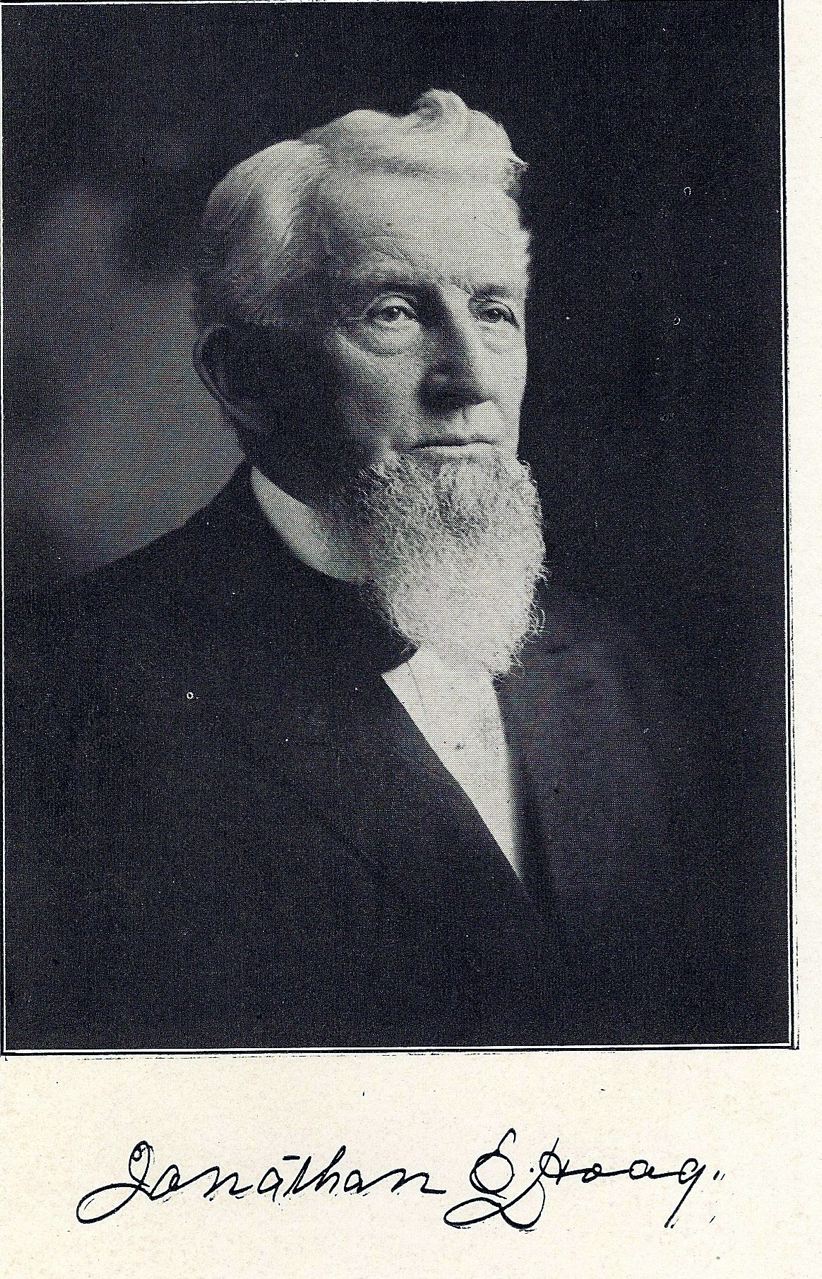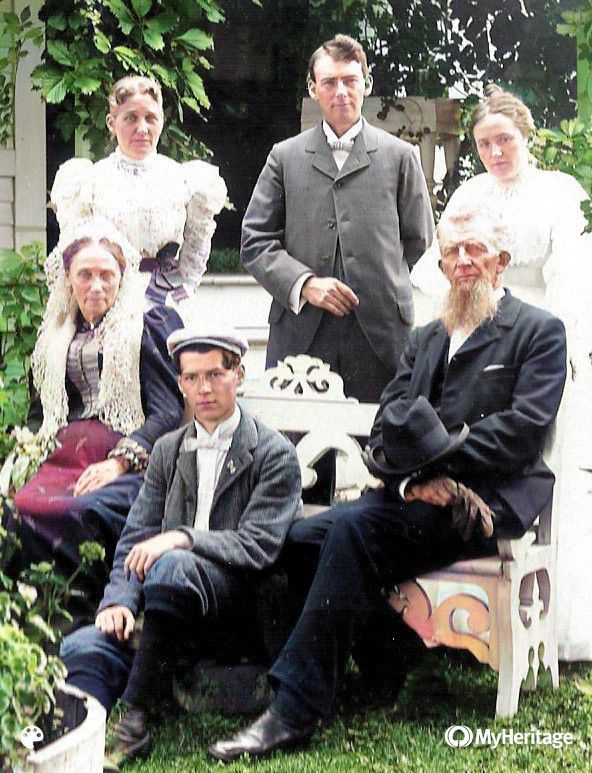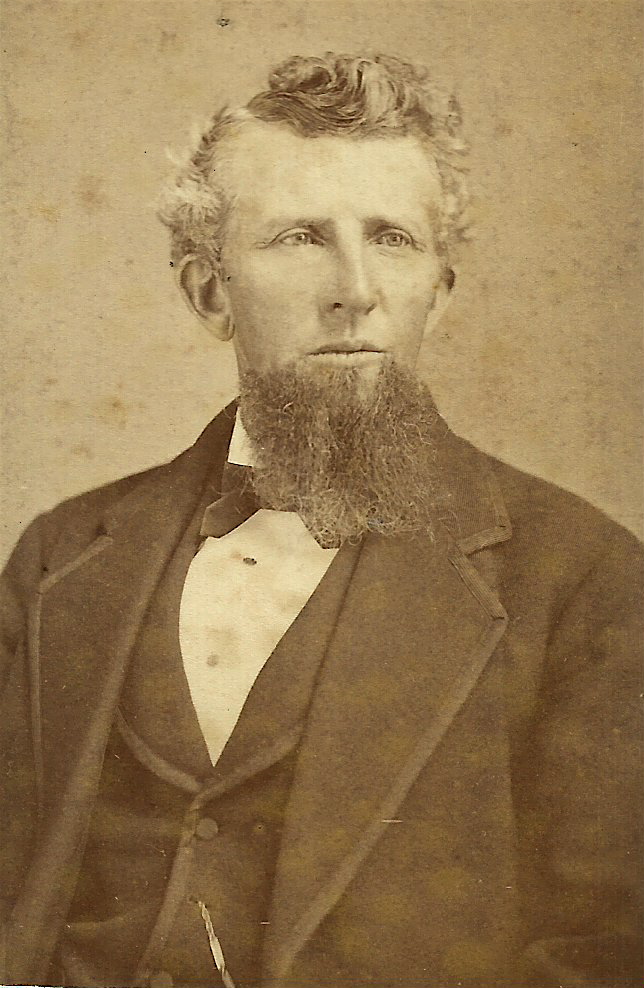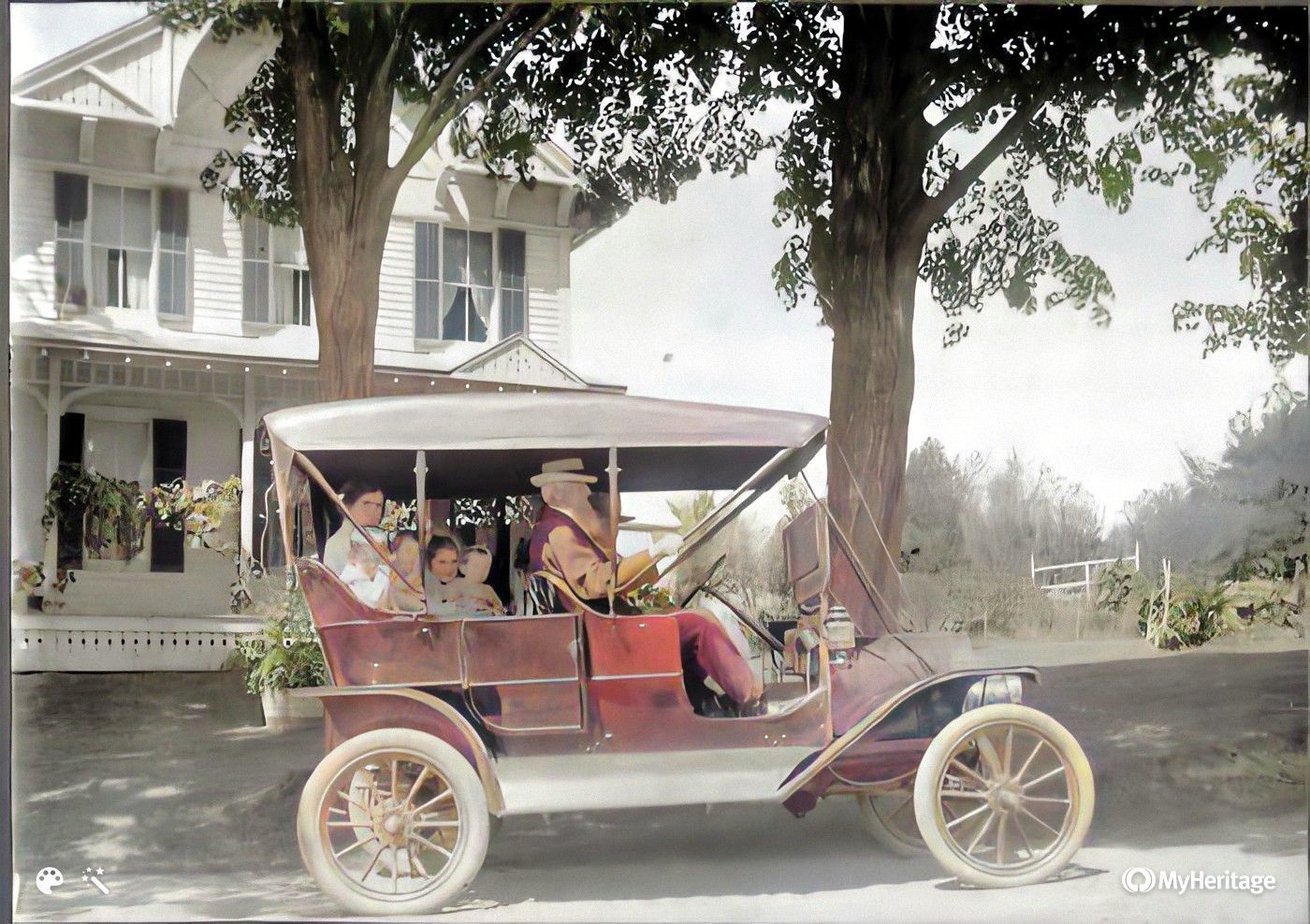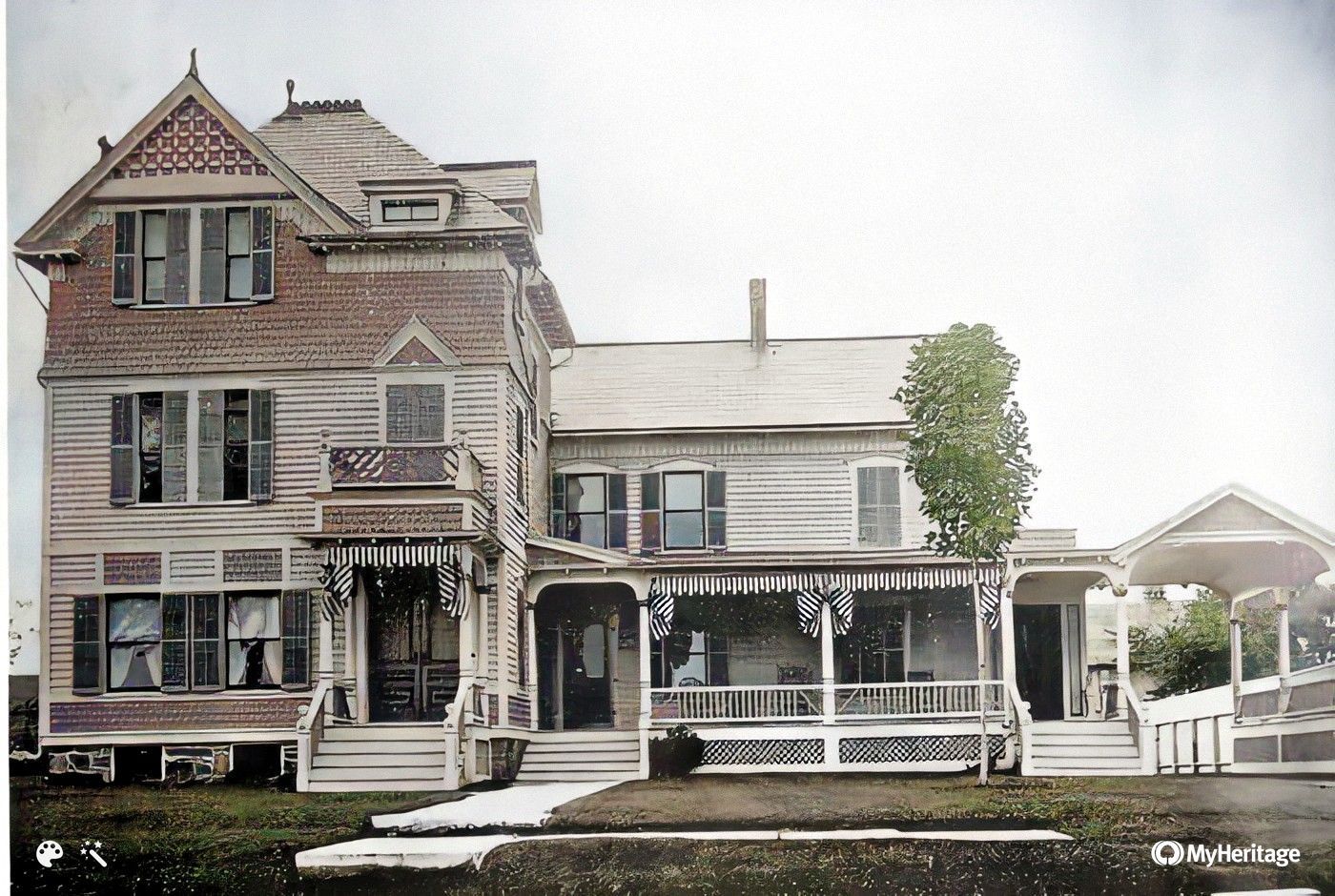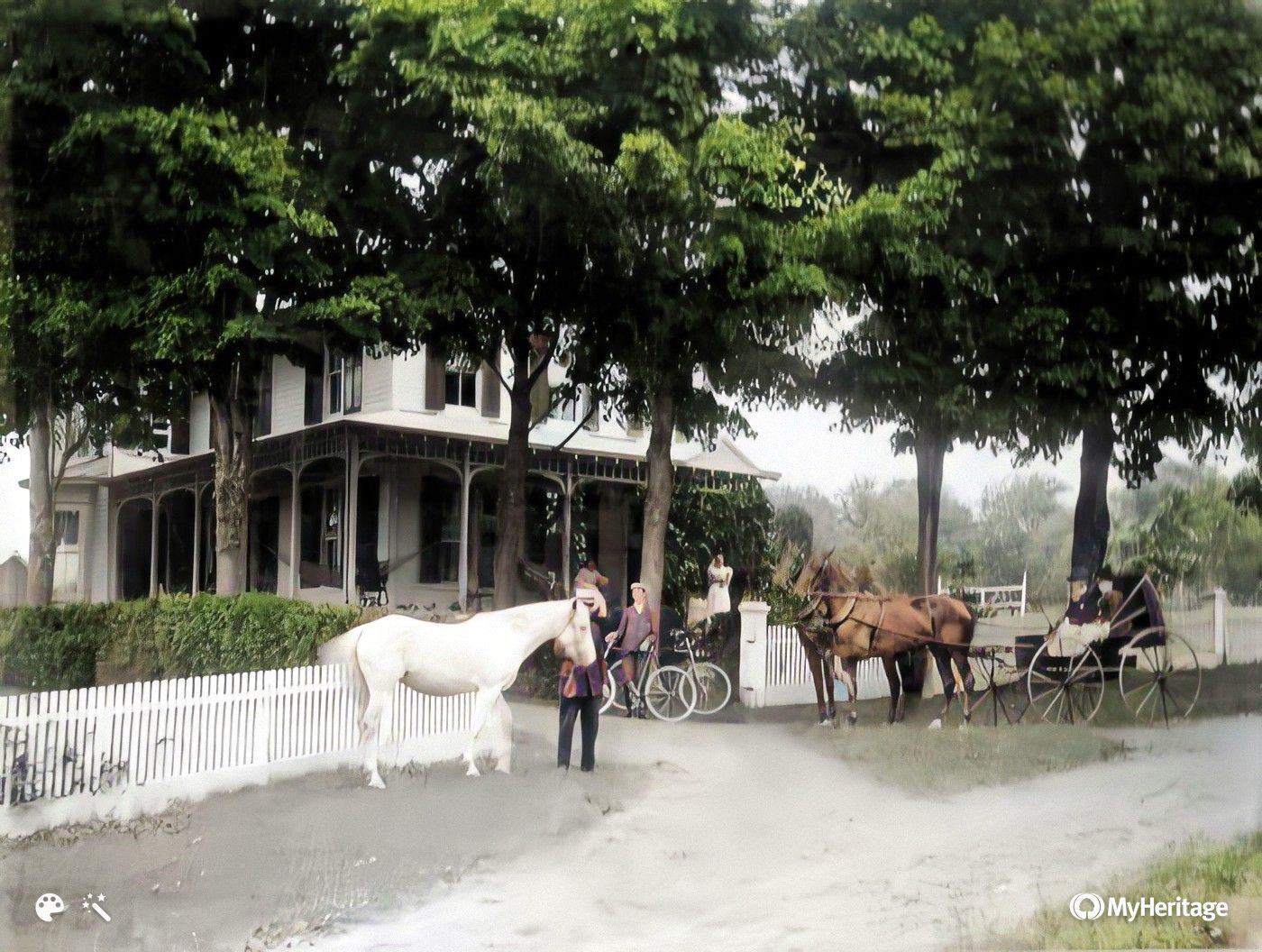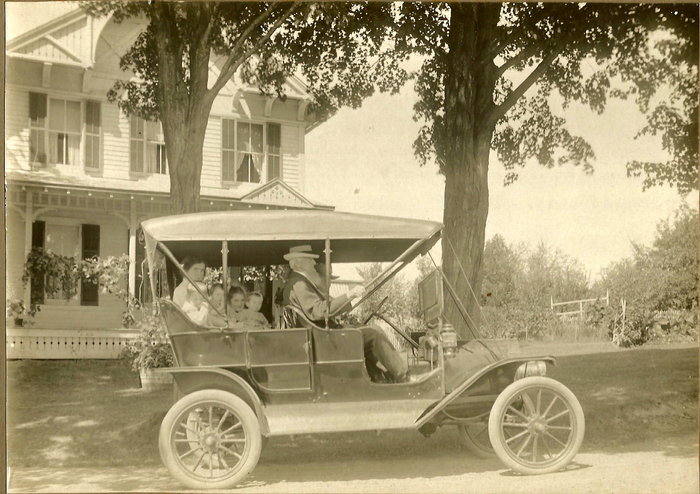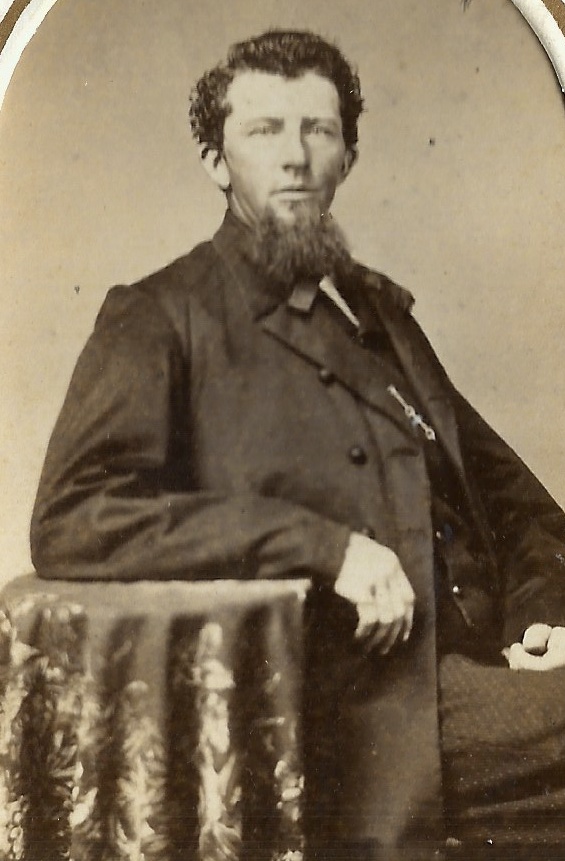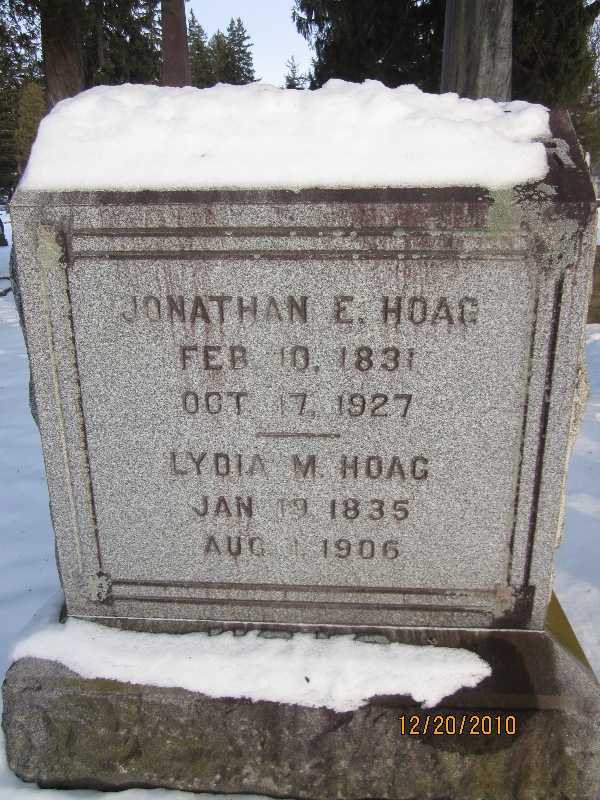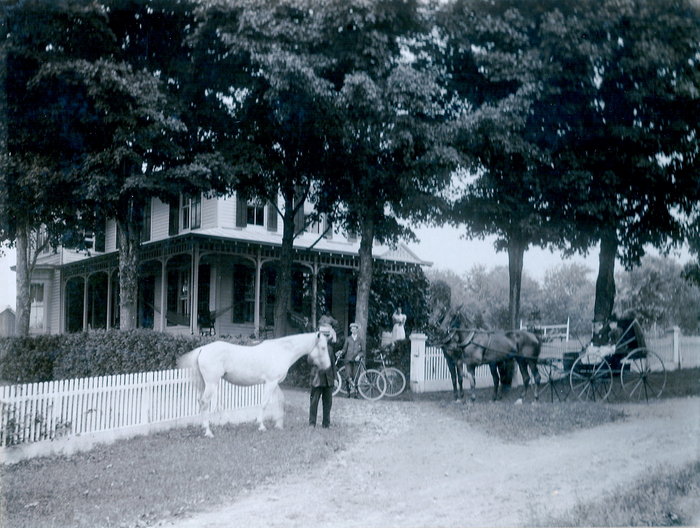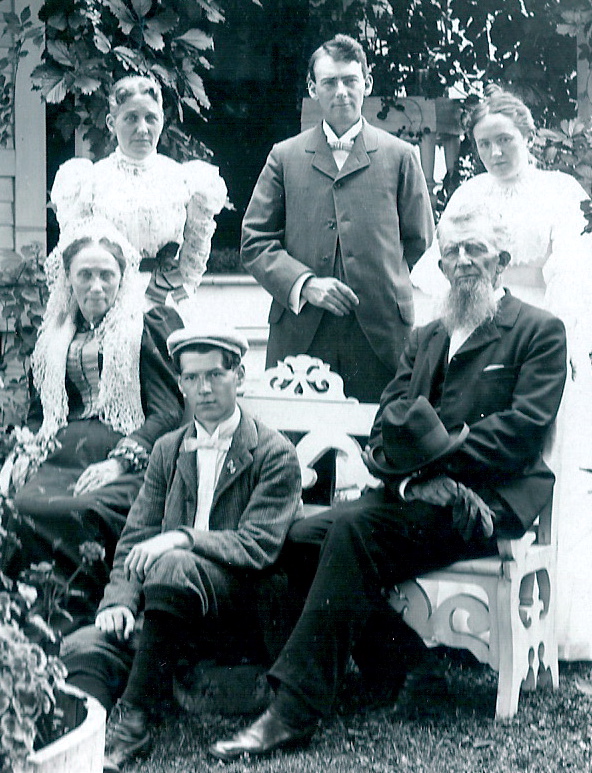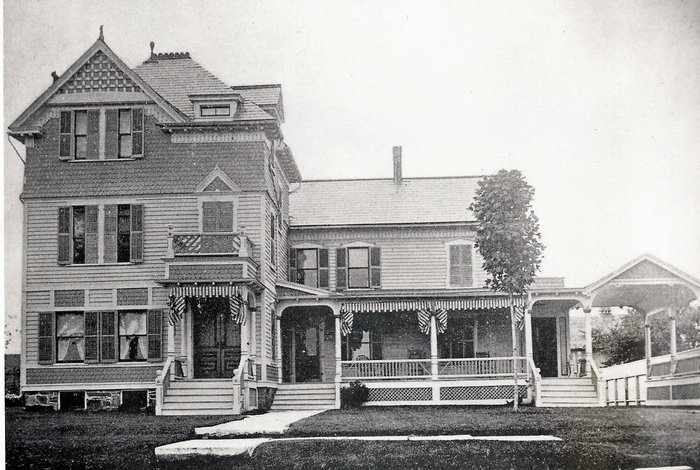Hoag was self educated and well read, having a broad range of interests, most especially nature, science and reminisces of times gone by. Lovecraft mentions Hoag learning first hand details of the American Revolution from his elderly great Aunt Lydia. Most of the poetry by Hoag is about family and home reminisces, as well as his travel out west.
A New York Times obituary dated, October 18, 1927 reports "Jonathan E. Hoag, 97, said to be the oldest resident of Washington County, died early this morning (17th) at his home, Vista Buena, here. (Greenwich) Mr. Hoag, who was a descendant of Ethan Allen, was a lawyer, poet, newspaper correspondent, scientist and scholar."
Hoag lived in Valley Falls until eight years of age when his family moved to the South Easton Farm. Seventeen years later, he bought the old John Robinson place adjoining his father's (Robert N.) land where he continued to live until his retirement in 1911 and move to Greenwich Village - the home he named Vista Buena at 17 Prospect St. Hoag ran for Congress three times as a Prohibition Party candidate in 1890, 1892, and 1898. Hoag also supported the Suffrage movement along with wife Lydia, joining the Easton Political Equality Club in 1892.
Hoag was well traveled, attending the 1876 Exposition at Philadelphia, and traveling out west in 1904. He visited many sites including the Grand Canyon, Pikes Peak and met Geronimo. Hoag chronicled his travels in his local newspaper, under the pen name "Scriba".
Here is an excerpt from Hoag's poem about Frederick Douglass, whom he probably met when Douglass visited Greenwich:
"...Then I saw that boy as a stalwart man,
Though born as a slave of Afric birth;
Harsh truths he spoke of his native land,
And mourned for the mother it crushed to earth.
I see him now as a fearless soul,
Who strove for a race held under a ban;
In his upraised hand he grasped the pen,
That struck the chains from his fellow-man!" 1923
Hoag was married and widowed three times. He had one child with each wife: 1. Frances Hoag Whitley, (1855-1947) with wife Mary Wilcox; 2. Elizabeth Lizzie Hoag Allen (1864-1965) with Elizabeth Roberson; and 3. Albert Allan Hoag (1867-1947) with Lydia Dwelle.
Note: Parts of this bio are from Hoag's Poetry book and from Jane Welling's book, "They Were Here Too". (Writer is Jonathan's Great Granddaughter.)
Hoag was self educated and well read, having a broad range of interests, most especially nature, science and reminisces of times gone by. Lovecraft mentions Hoag learning first hand details of the American Revolution from his elderly great Aunt Lydia. Most of the poetry by Hoag is about family and home reminisces, as well as his travel out west.
A New York Times obituary dated, October 18, 1927 reports "Jonathan E. Hoag, 97, said to be the oldest resident of Washington County, died early this morning (17th) at his home, Vista Buena, here. (Greenwich) Mr. Hoag, who was a descendant of Ethan Allen, was a lawyer, poet, newspaper correspondent, scientist and scholar."
Hoag lived in Valley Falls until eight years of age when his family moved to the South Easton Farm. Seventeen years later, he bought the old John Robinson place adjoining his father's (Robert N.) land where he continued to live until his retirement in 1911 and move to Greenwich Village - the home he named Vista Buena at 17 Prospect St. Hoag ran for Congress three times as a Prohibition Party candidate in 1890, 1892, and 1898. Hoag also supported the Suffrage movement along with wife Lydia, joining the Easton Political Equality Club in 1892.
Hoag was well traveled, attending the 1876 Exposition at Philadelphia, and traveling out west in 1904. He visited many sites including the Grand Canyon, Pikes Peak and met Geronimo. Hoag chronicled his travels in his local newspaper, under the pen name "Scriba".
Here is an excerpt from Hoag's poem about Frederick Douglass, whom he probably met when Douglass visited Greenwich:
"...Then I saw that boy as a stalwart man,
Though born as a slave of Afric birth;
Harsh truths he spoke of his native land,
And mourned for the mother it crushed to earth.
I see him now as a fearless soul,
Who strove for a race held under a ban;
In his upraised hand he grasped the pen,
That struck the chains from his fellow-man!" 1923
Hoag was married and widowed three times. He had one child with each wife: 1. Frances Hoag Whitley, (1855-1947) with wife Mary Wilcox; 2. Elizabeth Lizzie Hoag Allen (1864-1965) with Elizabeth Roberson; and 3. Albert Allan Hoag (1867-1947) with Lydia Dwelle.
Note: Parts of this bio are from Hoag's Poetry book and from Jane Welling's book, "They Were Here Too". (Writer is Jonathan's Great Granddaughter.)
